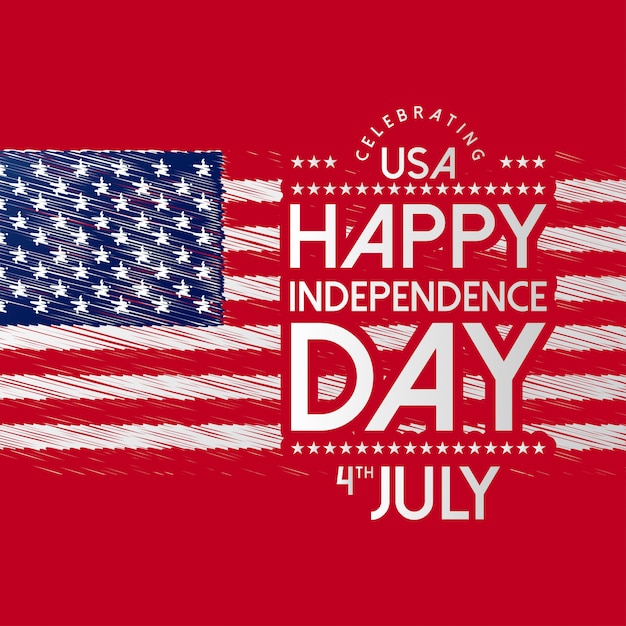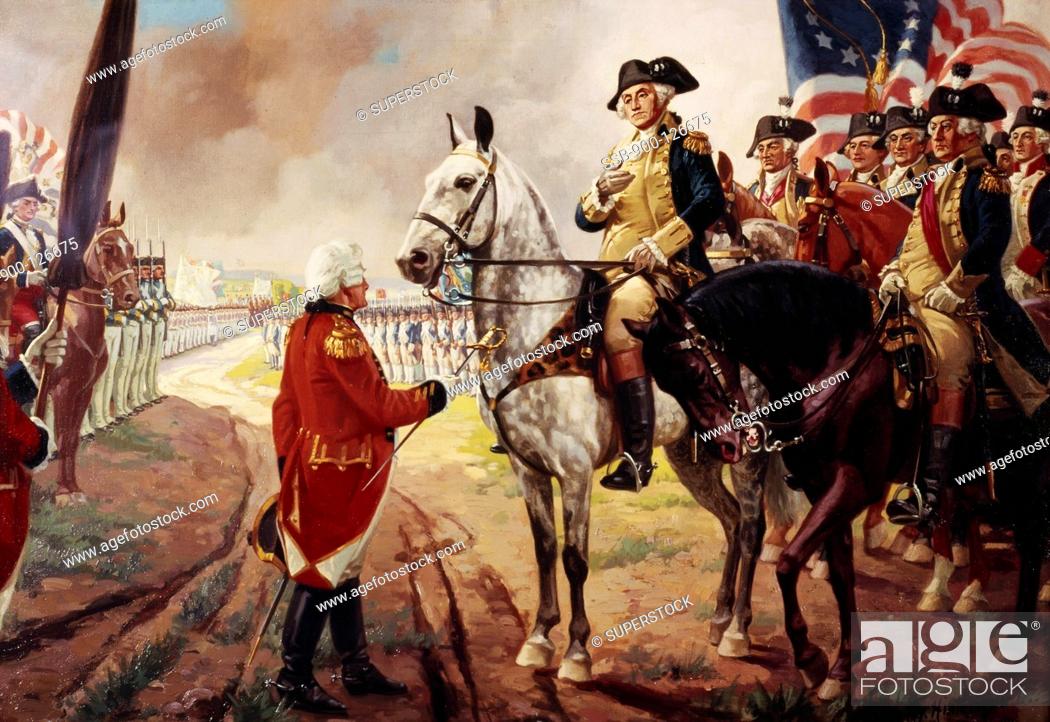True independence achieved on October 19, 1781 at Yorktown, VA.
The Surrender Negotiations
At 10 o'clock on the morning of October 17, 1781, a drummer beating a "parley," and a British officer with a flag of truce, mounted a parapet south of Yorktown. The allies saw the signal, and soon the incessant, devastating artillery fire ceased. A hushed stillness fell over the field.
Lord Cornwallis, realizing the defeat of his army was inevitable, sent a message to General George Washington:
"Sir, I propose a cessation of hostilities for twenty-four hours, and that two officers may be appointed by each side, to meet at Mr. Moore's house, to settle terms for the surrender of the posts of York and Gloucester."
Why Cornwallis selected the Moore House for the negotiations was not explained, however, there are a number of possibilities.The Moore House was well outside the line of siege fire, and therefore, not damaged. It was a neutral location, hiding the British situation in town, and possibly selected in the hope of securing better surrender terms. And finally, it was a convenient location for both sides to reach, as it was situated along the York River.
Washington agreed to only a two hour cease fire for Cornwallis to submit general terms of surrender. Messages continued to pass over the battlefield between the two Commodes.
Finally, on the afternoon of October 18, the two British commissioners, Lieutenant Colonel Thomas Dundas and Major Alexander Ross met in "Mr. Moore's house" with the allied officers, Lieutenant Colonel John Laurens, for the Americans, and Second Colonel Viscount de Noailles (Marquis de Lafayette's brother-in-law), representing the French.
The negotiations ended before midnight, and Laurens carried a rough draft of the articles to General Washington. Washington, however, was not completely happy with the results and made a few minor changes. Once the articles were revised and redrafted, a copy was sent to Cornwallis in Yorktown for his signature.
The Articles
The Articles of Capitulation were terms for the surrender of Cornwallis's British army. The 14 articles directed the surrender from the disposition of the troops, artillery, and arms, to even the surrender ceremony itself.
The articles directed where the troops, now prisoners of war, were to be sent. The soldiers were marched off to camps in Frederick, Maryland, and Winchester, Virginia. One field officer for every 50 men was allowed to reside near their respective regiments to witness their treatment and deliver clothing and other necessaries to the soldiers at the camps. All other officers were paroled and allowed to go to Europe, New York, or any other American post then in possession of the British forces, on the condition they would no longer fight until properly exchanged.
Another article provided for the care of the sick and wounded prisoners. Proper hospitals would be furnished, with patients attended by their surgeons on parole. Medicine and supplies were to be provided by the American hospitals, the British stores in both York and Gloucester, and passports would be issued to procure further supplies from New York if necessary.
The third article referred to the surrender ceremony and contained the provision that deprived the British of the honors war. Customary honors allowed the surrendering troops to march out of their works with their regimental flags flying and playing an enemy's tune in honor of the victor. George Washington was not going to allow these honors, instead he stated,
" The same honors will be granted to the surrendering army as granted to the garrison of Charlestown". In May 1780, an American army was captured at Charleston, South Carolina and not given the honors of war, therefore, in retaliation, the British would not be granted them at Yorktown. The troops, the article read, were to
"...march out...with shouldered arms, colors cased, and drums beating a British or German march. They are then to ground their arms and return to their encampment, where they will remain until they are dispatched to the places of their destination..."
By the afternoon of October 19th, 1781, both Commodes had signed the Articles of Capitulation, and the defeated British army was marching out from Yorktown to lay down their arms, ending the last major battle of the American Revolution.




